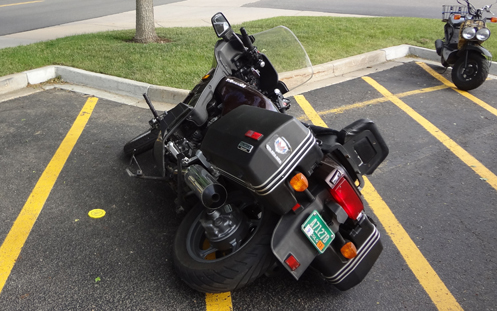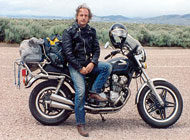Drawing Conclusions From The Naturalistic Study Results
“All of the crashes and near-crashes included in the risk analyses involve some type of control loss for the rider, whereas the baseline reference events include no loss of control.”
It may seem a little obvious and that may be a bit frustrating, but that is the primary conclusion drawn in the Motorcycle Safety Foundation (MSF) naturalistic study of motorcycle crashes and near-crashes. Isn’t loss of control a given in a crash?
I guess I’m not sure how to read that. Are they saying that the rider’s loss of control caused the crash or near-crash? Or that the crash/near-crash resulted in the rider’s loss of control? It’s that latter reading in which I would say, “Well . . . Yeah!”
But consider that dropping the bike is included in these incidents and that suggests the former is the one they mean. Dropping the bike didn’t cause the rider to lose control; dropping the bike indicates a loss of control by the rider.
(I’m reasoning this all through as I sit here writing. You’re seeing my thought process in action.)
So if I’ve got that right, then that may well be a significant conclusion. In every instance, the rider could have done something to avoid getting into the situation in the first place.
That actually jibes with what my friend Jungle says. He essentially believes that ALL crashes are avoidable and if you did crash, it was your fault. You could have avoided it if you had been paying more attention, looking further down the road, keeping your speed in check, whatever. And sure, people do turn left in front of you; they’ve done it to me but I haven’t crashed because I’ve either been paying attention and anticipating them, or slowed down nearing the intersection, or whatever. I’m sure this is true of you, too.
Of course then I have to consider what happened to Alan. He and Dan were out riding and seemingly out of nowhere a deer dashed out and hit him from behind. He never saw it, though Dan, riding behind, saw it all. Challenging Jungle a little, I don’t really know how Alan could have done anything at all to prevent that one.
But in all but the very tiniest number of instances, it seems you can do something. That’s why you’ve got to be sober and that’s why you’ve got to be paying attention, ALL THE TIME.
Of course, none of us is perfect and so none of us is really paying attention all the time, every single second. And most of the time we get away with it, but sometimes we don’t. Todd, a guy who came with the OFMC just one year, was on his bike sometime after our trip and he looked down to fiddle with something–I can’t remember what now–and when he looked up a couple seconds later the car in front of him had come to a sudden stop. He rear-ended the guy and went flying. Todd totally gave up motorcycles after that.
So fine, we’re not perfect. But we have to try to be perfect, because the penalty is too great. Back to that conclusion up top, you could paraphrase: If you have full control of your motorcycle, you will not crash. Because no one chooses to crash. If you do crash, you were not in full control. Stay in control.
Biker Quote for Today
A motorcycle coming down from 30 feet at 70 mph gives you a terrible jolt. — Evel Knievel
Tags: Motorcycle Safety Foundation, naturalistic motorcycle study


November 10th, 2016 at 2:14 pm
This follows a well-established maxim in the aviation community – you drill back far enough and everything is pilot error (up to and including McCain’s failure to zig when he should have zagged, and had a SAM up his tailpipe).